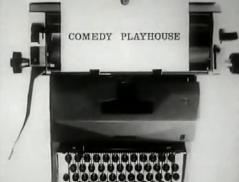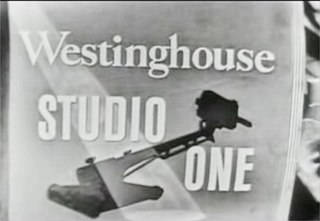
Radio drama is a dramatized, purely acoustic performance. With no visual component, radio drama depends on dialogue, music and sound effects to help the listener imagine the characters and story: "It is auditory in the physical dimension but equally powerful as a visual force in the psychological dimension." Radio drama includes plays specifically written for radio, docudrama, dramatized works of fiction, as well as plays originally written for the theatre, including musical theatre, and opera.

A radio dramatization of the original Star Wars film trilogy was produced in 1981, 1983, and 1996. The first two radio series, based on Star Wars and The Empire Strikes Back, were produced and broadcast by National Public Radio (NPR) as part of NPR Playhouse. A dramatization of Return of the Jedi was produced by most of the same team and it was also broadcast on NPR.
A miniseries or mini-series is a television series that tells a story in a predetermined, limited number of episodes. Many miniseries can also be referred to, and shown, as a television film. "Limited series" is a more recent US term which is sometimes used interchangeably. As of 2021, the popularity of miniseries format has increased in both streaming services and broadcast television.

Comedy Playhouse is a long-running British anthology series of one-off unrelated sitcoms that aired for 128 episodes from 1961 to 1975. Many episodes later graduated to their own series, including Steptoe and Son, Meet the Wife, Till Death Us Do Part, All Gas and Gaiters, Up Pompeii!, Not in Front of the Children, Me Mammy, That's Your Funeral, The Liver Birds, Are You Being Served? and particularly Last of the Summer Wine, which is the world's longest running sitcom, having run from January 1973 to August 2010. In all, 27 sitcoms started from a pilot in the Comedy Playhouse strand.

Hallmark Hall of Fame, originally called Hallmark Television Playhouse, is an anthology program on American television, sponsored by Hallmark Cards, a Kansas City–based greeting card company. The longest-running prime-time series in the history of television, it first aired in 1951 and continues into the present day. From 1954 onward, all of its productions have been broadcast in color. It was one of the first video productions to telecast in color, a rarity in the 1950s. Many television films have been shown on the program since its debut, though the program began with live telecasts of dramas and then changed to videotaped productions before finally changing to filmed ones.
Earplay was the longest-running of the formal series of radio drama anthologies on National Public Radio, produced by WHA in Madison, Wisconsin and heard from 1972 into the 1990s. It approached radio drama as an art form with scripts written by such leading playwrights as Edward Albee, Arthur Kopit, Archibald MacLeish and David Mamet.

Playhouse 90 was an American television anthology drama series that aired on CBS from 1956 to 1960 for a total of 133 episodes. The show was produced at CBS Television City in Los Angeles, California. Since live anthology drama series of the mid-1950s usually were hour-long shows, the title highlighted the network's intention to present something unusual: a weekly series of hour-and-a-half-long dramas rather than 60-minute plays.

Lux Radio Theatre, sometimes spelled Lux Radio Theater, a classic radio anthology series, was broadcast on the NBC Blue Network (1934–35) ; CBS Radio network (1935–54), and NBC Radio (1954–55). Initially, the series adapted Broadway plays during its first two seasons before it began adapting films. These hour-long radio programs were performed live before studio audiences. The series became the most popular dramatic anthology series on radio, broadcast for more than 20 years and continued on television as the Lux Video Theatre through most of the 1950s. The primary sponsor of the show was Unilever through its Lux Soap brand.

The United States Steel Hour is an anthology series which brought hour-long dramas to television from 1953 to 1963. The television series and the radio program that preceded it were both sponsored by the United States Steel Corporation.

Georgina Hale is a British film, television and stage actress, known for her roles in the films of Ken Russell, including Mahler, for which she received a British Academy Film Award. She received a Laurence Olivier Award nomination for her performance in the original London production of Steaming. In 2010, she was listed as one of ten great British character actors by The Guardian.

An anthology series is a radio, television, film, or video game series that presents a different story and a different set of characters in each different episode, season, segment, or short. These usually have a different cast in each episode, but several series in the past, such as Four Star Playhouse, employed a permanent troupe of character actors who would appear in a different drama each week. Some anthology series, such as Studio One, began on radio and then expanded to television.

Studio One is an American anthology drama television series that was adapted from a radio series. It was created in 1947 by Canadian director Fletcher Markle, who came to CBS from the CBC. It premiered on November 7, 1948, and ended on September 29, 1958, with a total of 467 episodes over the course of 10 seasons.
Norman Scarth Macdonnell was an American producer for radio, television, and feature films. He is best known for co-creating with writer John Meston the Western series Gunsmoke, which was broadcast on CBS Radio from 1952 to 1961, and on television from 1955 to 1975.
Ford Theatre, spelled Ford Theater for the original radio version and known, in full, as The Ford Television Theatre for the TV version, is a radio and television anthology series broadcast in the United States in the 1940s and 1950s. At various times the television series appeared on all three major television networks, while the radio version was broadcast on two separate networks and on two separate coasts. Ford Theatre was named for its sponsor, the Ford Motor Company, which had an earlier success with its concert music series, The Ford Sunday Evening Hour (1934–42).

Martin Ellyot Manulis was an American television, film, and theatre producer. Manulis was best known for his work in the 1950s producing the CBS Television programs Suspense, Studio One Summer Theatre, Climax!, The Best of Broadway and Playhouse 90. He was the sole producer of the award-winning drama series, Playhouse 90, during its first two seasons from 1956 to 1958.
"The Veldt" is a science fiction short story by American author Ray Bradbury. Originally appearing as "The World the Children Made" in the September 23, 1950, issue of The Saturday Evening Post, it was republished under its current name in the 1951 anthology The Illustrated Man.

Westinghouse Desilu Playhouse is an American television anthology series produced by Desilu Productions. The show ran on the Columbia Broadcasting System between 1958 and 1960. Three of its 48 episodes served as pilots for the 1950s television series The Twilight Zone and The Untouchables.

David Scott Ashton is a Scottish actor and writer. Trained at the Central School of Speech and Drama in London, 1964–67, he has acted in a wide variety of film, television, theatre and radio roles. He has also developed a parallel career as a writer of fiction, film and television screenplays and plays for theatre and radio. His radio play The Old Ladies at the Zoo, which starred Peggy Mount and Liz Smith, won the Radio Times Drama Award in 1985.
Philip Morris Playhouse is a 30-minute old-time radio dramatic anthology series.
There have been many adaptations of the works of M. R. James for television, radio, audio and the stage, as well as a 1957 film adaptation of "Casting the Runes" by Jacques Tourneur, titled Night of the Demon.












